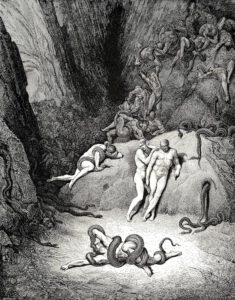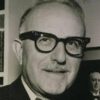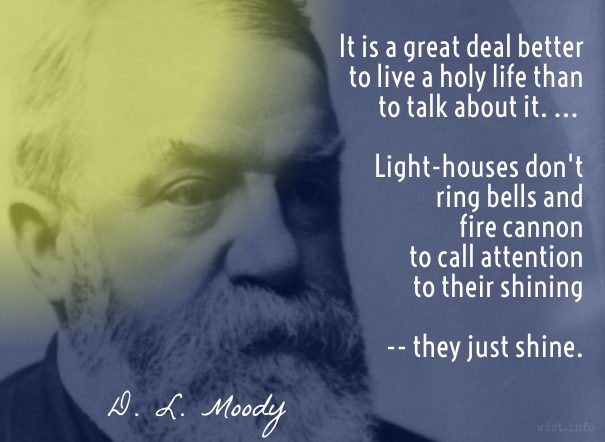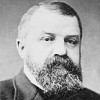If, dear Reader, what I tell you throws
you into disbelief, it’s no surprise —
I scarcely credit it myself, God knows,
and I was there.[Se tu se’ or, lettore, a creder lento
ciò ch’io dirò, non sarà maraviglia,
ché io che ’l vidi, a pena il mi consento.]Dante Alighieri (1265-1321) Italian poet
The Divine Comedy [Divina Commedia], Book 1 “Inferno,” Canto 25, l. 46ff (25.46-48) (1309) [tr. Carson (2002)]
(Source)
Dante is gobsmacked over a serpent/lizard biting a thief, and each of their bodies changing into the other. He spends the rest of the canto in detailed description of the transformation.
(Source (Italian)). Alternate translations:
If, Reader, you are tardy to believe
What I shall say, it will no wonder raise;
For I who saw it scarcely give assent.
[tr. Rogers (1782), l. 42ff]
Nor marvel, ye that hear the wondrous tale!
If doubts, arising oft, your minds assail!
Those eyes, that saw them, scarce believ'd the sight.
[tr. Boyd (1802), st. 8]
O reader! now
Thou be not apt to credit what I tell,
No marvel; for myself do scarce allow
The witness of mine eyes.
[tr. Cary (1814)]
If, reader, thou should'st tardily receive
What now I tell, it might not much surprise,
When I, who saw it, scarce myself believe.
[tr. Dayman (1843)]
If thou art now, O Reader, slow to credit what I have to tell, it will be no wonder: for I who saw it, scare allow it to myself.
[tr. Carlyle (1849)]
And if thou, reader, to believe art slow,
What I shall tell, 'twill be by no means strange,
For I who saw it must suspect the change.
[tr. Bannerman (1850)]
If, reader, thou art backward to believe
What I shall say, no wonder thou shouldst doubt,
For I myself who saw can scarce believe.
[tr. Johnston (1867)]
If thou art, Reader, slow now to believe
What I shall say, it will no marvel be,
For I who saw it hardly can admit it.
[tr. Longfellow (1867)]
If thou art now, reader, slow to believe that which I am going to say, it will be no marvel, for I who saw it hardly allow it to myself.
[tr. Butler (1885)]
If now, O reader, thou shouldst scarce be bent
To trust my speech no marvel it will be,
Since I who saw it scarcely can consent.
[tr. Minchin (1885)]
If thou art now, Reader, slow to credit that which I shall tell, it will not be a marvel, for I who saw it hardly admit it to myself.
[tr. Norton (1892)]
If, Reader, thou art now slow to believe what I shall tell thee, it were no thing to wonder at, for I that saw it can scarce admit its truth.
[tr. Sullivan (1893)]
If thou art slow, now, reader, at believing
What I shall say, it will not be a marvel,
For I, who saw it, scarcely do accept it.
[tr. Griffith (1908)]
If, reader, thou art now slow to credit what I shall tell, it will be no wonder, for I who saw it scarcely admit it to myself.
[tr. Sinclair (1939)]
If thou art slow of faith, thou who dost read
What I shall tell, 'tis nothing for surprise.
Since half I doubt, I who witnessed it indeed.
[tr. Binyon (1943)]
Reader, if thou discredit what is here
Set down, no wonder; for I hesitate
Myself, who saw it all as clear as clear.
[tr. Sayers (1949)]
Reader, should you doubt what next I tell,
it will be no wonder, for though I saw it happen,
I can scarce believe it possible, even in Hell.
[tr. Ciardi (1954)]
If, reader, you are now slow to credit that which I shall tell, it will be no wonder, for I who saw it do scarcely admit it to myself.
[tr. Singleton (1970)]
Now if, my reader, you should hesitate
to believe what I shall say, there's little wonder,
for I, the witness, scarcely can believe it.
[tr. Musa (1971)]
If, reader, you are slow now to believe
what I shall tell, that is no cause for wonder,
for I who saw it hardly can accept it.
[tr. Mandelbaum (1980)]
If you now, reader, are slow to believe
What I shall tell you, it will be no wonder
For I who saw it can scarcely credit it!
[tr. Sisson (1981)]
Reader, if you are slow
To credit what I tell you next, it should
Be little wonder, for I who saw it know
That I myself can hardly acknowledge it
[tr. Pinsky (1994), l. 44ff]
If now, reader, you are slow to believe what I say, that will be no marvel, for I, who saw it, hardly allow it.
[tr. Durling (1996)]
Reader, if you are slow to credit, now, what I have to tell, it will be no wonder, since I who saw it, scarcely credit it myself.
[tr. Kline (2002)]
If you are slow, my reader, to receive,
in faith, what I'll say now -- no miracle.
I saw it all, and yet can scarce believe.
[tr. Kirkpatrick (2006)]
If, reader, you are slow to credit
what I'm about to tell you, it's no wonder:
I saw it, and I myself can scarce believe it.
[tr. Hollander/Hollander (2007)]
Now, readers all,
If you cannot quite believe my story,
I find it hard, and I'm the one who saw it.
[tr. Raffel (2010)]
If you are slow
To credit, reader, what I tell you now,
No wonder. I, who saw it to be so,
Scarcely believe it still.
[tr. James (2013)]
Quotations about:
witness
Note not all quotations have been tagged, so Search may find additional quotes on this topic.
Pure Valour, if there were any such thing, would consist in the doing of that without witnesses, which it were able to do, if all the world were to be spectators thereof.
[La pure valeur (s’il y en avait) serait de faire sans témoins ce qu’on est capable de faire devant le monde.]
François VI, duc de La Rochefoucauld (1613-1680) French epigrammatist, memoirist, noble
Réflexions ou sentences et maximes morales [Reflections; or Sentences and Moral Maxims], ¶216 (1665-1678) [tr. Davies (1669), ¶97]
(Source)
(Source (French, 1665 ed., ¶229)). In the final edition (1678, ¶216), the original French had been modified to:
La parfaite valeur est de faire sans témoins ce qu’on seroit capable de faire devant tout le monde.
Alternate translations:
True Valour would do all that, when alone, that it could do, if all the World were by.
[tr. Stanhope (1694), ¶217]
Perfect valour consists in doing without witnesses all we should be capable of doing before the whole world.
[pub. Donaldson (1783), ¶431]
Perfect valour consists in doing, without witness, all that we should be capable of doing before the whole world.
[ed. Carville (1835), ¶367]
Perfect valor is to do unwitnessed what we should be capable of doing before all the world.
[ed. Gowens (1851), ¶225]
Perfect valour is to do without witnesses what one would do before all the world.
[tr. Bund/Friswell (1871)]
Perfect valor accomplishes without witnesses what anyone could do before the eyes of the world.
[tr. Heard (1917), ¶221]
Perfect courage consists in doing unobserved what what we could do in the eyes of the world.
[tr. Stevens (1939)]
Perfect valour is to behave, without witnesses, as one would act were all the world watching.
[tr. FitzGibbon (1957)]
Perfect courage means doing unwitnessed what we would be capable of with the world looking on.
[tr. Kronenberger (1959)]
Perfect valour consists in doing without witnesses what one would be capable of doing before the world at large.
[tr Tancock (1959)]
Perfect courage is to do without witnesses what one would do before all the world.
[tr. Whichello (2016)]
Perfect courage is to do without witnesses what one would be capable of doing with the world looking on.
[Source]
Heartbreaking things I saw with my own eyes
And was myself a part of.[Quaeque ipse miserrima vidi
et quorum pars magna fui.]Virgil (70-19 BC) Roman poet [b. Publius Vergilius Maro; also Vergil]
The Aeneid [Ænē̆is], Book 2, l. 5ff (2.5-6) [Aeneas] (29-19 BC) [tr. Fitzgerald (1981)]
(Source)
Recounting the fall of Troy. (Source (Latin)). Alternate translations:
Whose sad destruction I my self have seen,
And in her losse have no small sharer been.
[tr. Ogilby (1649)]
All that I saw, and part of which I was.
[tr. Dryden (1697)]
The woes I saw with these sad eyne,
The deeds whereof large part was mine
[tr. Conington (1866)]
The afflicting scenes that I myself
Beheld, and a great part of which I was.
[tr. Cranch (1872)]
I myself saw these things in all their horror, and I bore great part in them.
[tr. Mackail (1885)]
Which thing myself unhappy did behold,
Yea, and was no small part thereof
[tr. Morris (1900)]
The woes I saw, thrice piteous to behold,
And largely shared.
[tr. Taylor (1907), st. 1, ll. 6-7]
Which woeful scene I saw,
and bore great part in each event I tell.
[tr. Williams (1910)]
The sights most piteous that I myself saw and whereof I was no small part.
[tr. Fairclough (1916)]
Sorrowful things I saw myself, wherein
I had my share and more.
[tr. Humphries (1951)]
Most piteous events I saw with my own eyes
And played no minor part in.
[tr. Day Lewis (1952)]
I saw these terrible things,
and took great part in them.
[tr. Mantinband (1964)]
For I myself
saw these sad things; I took large part in them.
[tr. Mandelbaum (1971)]
And all the horrors I have seen, and in which I played a large part.
[tr. West (1990)]
Miseries I saw myself,
and in which I played a great part.
[tr. Kline (2002)]
I saw these horrors myself
And played no small part in them.
[tr. Lombardo (2005)]
What horrors I saw,
a tragedy where I played a leading role myself.
[tr. Fagles (2006)]
I saw the piteous events myself -- I played no minor part.
[tr. Bartsch (2021)]
All of which misery I saw,
and a great part of which I was.
The biographer does not trust his witnesses, living or dead. He may drip with the milk of human kindness, believe everything that his wife and his friends and his children tell him, enjoy his neighbors and embrace the universe — but in the workshop he must be as ruthless as a board meeting smelling out embezzlement, as suspicious as a secret agent riding the Simplon-Orient Express, as cold-eyed as a pawnbroker viewing a leaky concertina. With no respect for human dignity, he plays off his witnesses one against the other, snoops for additional information to confront them with, probes their prejudices and their pride, checks their reliability against their self-interest, thinks the worst until he is permitted to think better.
Paul Murray Kendall (1911-1973) American academic and historian
“Walking the Boundaries,” The Art of Biography (1965)
(Source)
It is a great deal better to live a holy life than to talk about it. We are told to let our light shine, and if it does, we won’t need to tell anybody it does. Light-houses don’t ring bells and fire cannon to call attention to their shining — they just shine.







